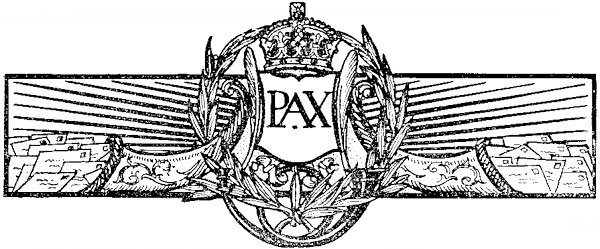Cultures > Aquitani
Aquitani

Background
The Aquitanians (Latin: Aquitani) were a people living in what is now southern Aquitaine and southwestern Midi-Pyrénées, France, called Gallia Aquitania by the Romans in the region between the Pyrenees, the Atlantic ocean, and the Garonne, present-day southwestern France. They were an ancient non-Indo-European population that lived in the northern slopes of the Pyrenees. They spoke the Aquitanian language, related to Old Basque. Classical authors such as Julius Caesar and Strabo clearly distinguish them from the other peoples of Gaul and Hispania (the Iberian Peninsula). With the process of Romanization, in the centuries of Roman Empire, they adopted the Latin Language (Vulgar Latin) and Roman civilization. Their old language, the Aquitanian language, was the substrate for the Gascon language (one of the Romance languages) spoken in Gascony.Contents [hide]1History2Relation to Basque people and language3Tribes3.1Aquitani related peoples or tribes4References5External links6See alsoHistory[edit]At the time of the Roman conquest, Julius Caesar, who defeated them in his campaign in Gaul, describes them as making up a distinct part of Gaul:All Gaul is divided into three parts, one of which the Belgæ inhabit, the Aquitani another, those who in their own language are called Celts, in ours Gauls, the third. All these differ from each other in language, customs and laws. The river Garonne separates the Gauls from the Aquitani[1]Despite apparent cultural and linguistic connections to Iberia (Vascones) and to Iberians, the area of Aquitania, as a part of Gaul ended at the Pyrenees according to Cæsar:Aquitania extends from the river Garonne to the Pyrenæan mountains and to that part of the ocean which is near Spain: it looks between the setting of the sun, and the north star.[2]Relation to Basque people and language[edit]The presence of what seems to be names of deities or people in late Romano-Aquitanian funerary slabs similar to modern Basque have led many philologists and linguists to conclude that Aquitanian was closely related to an older form of Basque.[3] The fact that the region was known as Vasconia in the Early Middle Ages, a name that evolved into the better known form of Gascony, along with other toponymic evidence, seems to corroborate that assumption.Tribes[edit]Tribes in Aquitania (as was defined in the 1st century BCE)Late distribution of tribes in Novempopulania at the end of the 6th century CE, former Aquitania proper (as was defined in the 1st century BCE)Although the country where the original Aquitanians lived came to be named Novempopulania (nine peoples) in the late years of the Roman Empire and Early Middle Ages (up to the 6th century), the number of tribes varied (about 20 for Strabo, but comparing with the information of other classical authors such as Pliny, Ptolemy and Julius Caesar, the total number were 32 or 33):[citation needed]Arenosii or Airenosini in Aran valley, (high Garonne valley), part of Aquitania and not of Hispania in the Roman EmpireApiates/Aspiates in the Valley of Asp (Valée d'Asp)Aturenses in the banks of the Adour (Aturus) riverAusci in the east around Auch (Elimberris, metropolis of Aquitania)Benearni or Benearnenses/Venarni in and around low Béarn, Pau, Pyrénées-AtlantiquesBercorates/BercorcatesBigerriones or Begerri in the west of the French département of High Pyrenees (medieval county of Bigorre)Boiates/Boates/Boii Boiates/Boviates in the coastal region of Pays de Buch and Pays de Born, in the Northwest of Landes, could have been an Aquitani tribe but also may have been a Celtic tribe related to the Boii or a mixed Celtic-Aquitanian tribeCamponiCocosates/Sexsignani in the west of Landes départementConsoranni in the tributary streams of the high Garonne river in the former province of Couserans, today's west half of the Ariège départment and extreme south of Haute-GaronneConvenae, a “groupement” in the southeast (high Garonne valley) in and around Lugdunum ConvenarumDatii in Valley of Osse (Valée d'Osse)Elusates in the northeast around Eauze (former Elusa)Gates between the Elusates and the AusciIluronenses in and around Iluro (Oloron-Sainte-Marie)Lactorates or Lectorates in and around LectoureMonesiiOnobrisates in NébouzanOsii or Onesii in the high Garonne river valley (Louchon), only mentioned in Strabo's GeographicaOscidates in the valleys and slopes of the west Pyrenees, in Ossau, high Béarn, south of the IluronensesOscidates CampestresOscidates MontaniPtianii in OrthezSassumini/Lassumini/LassunniSibyllates or Suburates probably around Soule/Xüberoa and also Saubusse; the same of Cæsar’s Sibuzates/Sibusates?Sotiates in the north around Sos-en-Albret (south of Lot-et-Garonne department)SuccassesTarbelli or Tarbelii/Quattuorsignani in the coastal side of Landes, with Dax (Aquis Tarbellicis)Tarusates in the Midou, Douze and Midouze valley, east of Cocosates and TarbelliTarusci in the high Ariège river valley in the former province of Foix, today's east half of the Ariège departmentUmbraniciVasates/Vocates in the north around Bazas (south of Gironde department)Vellates in high Bidassoa river valleyVenami/VenarniAquitani related peoples or tribes[edit]In the southern slopes of western Pyrenees Mountains, not in Aquitania but in northern Hispania Tarraconensis:Iacetani in high Aragon River valley, in and around Jaca, in the southern slopes of western Pyrenees Mountains in today's northwestern Aragon, SpainVascones in the southern slopes of western Pyrenees Mountains in today's Navarra, SpainReferences[edit]Jump up ^ These are indeed the opening lines of Caesar’s account of his war in Gaul: Gallia est omnis divisa in partes tres, quarum unam incolunt Belgæ, aliam Aquitani, tertiam qui ipsorum lingua Celtæ, nostra Galli appellantur. Hi omnes lingua, institutis, legibus inter se differunt. Gallos ab Aquitanis Garumna flumen [...] dividit. Julius Cæsar, De bello Gallico 1.1, edition of T. Rice HolmesJump up ^ Aquitania a Garumna flumine ad Pyrenæos montes et eam partem Oceani quæ est ad Hispaniam pertinet; spectat inter occasum solis et septentriones.Jump up ^ Trask, L. The History of Basque Routledge: 1997 ISBN 0-415-13116-2External links[edit]http://penelope.uchicago.edu/Thayer/E/Roman/home.html - 51 complete works of authors from Classical Antiquity (Greek and Roman).http://penelope.uchicago.edu/Thayer/E/Roman/Texts/Caesar/Gallic_War/home.html - Julius Caesar text of De Bello Gallico (Gallic War).http://penelope.uchicago.edu/Thayer/E/Roman/Texts/Pliny_the_Elder/home.html - Pliny the Elder text of Naturalis Historia (Natural History) - books 3-6 (Geography and Ethnography).http://penelope.uchicago.edu/Thayer/E/Roman/Texts/Strabo/home.html - Strabo's text of De Geographica (The Geography).
Celtic Tribes List
Sources
Primary Sources
Secondary Sources

